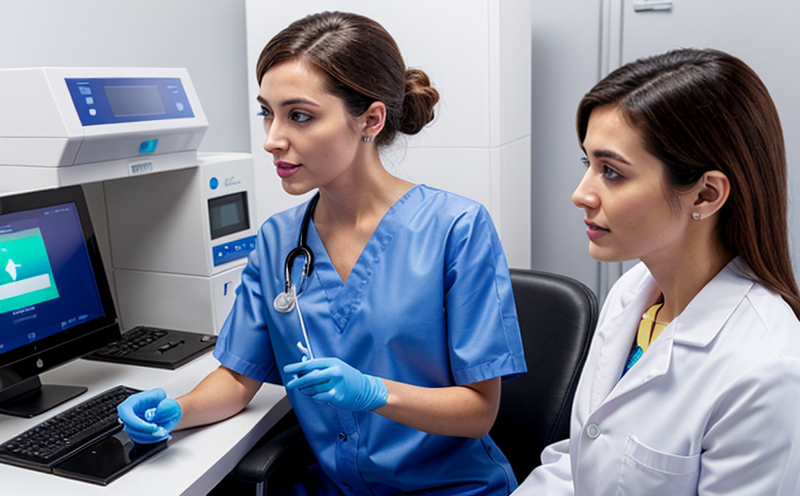PCR Detection of Foot-and-Mouth Disease Virus in Livestock
The detection and diagnosis of foot-and-mouth disease (FMD) is critical to prevent its spread among livestock, ensuring public health security and minimizing economic losses. The Polymerase Chain Reaction (PCR) technique has emerged as a reliable method for detecting the FMD virus (Aphtovirus, family Picornaviridae) in samples from infected animals. This service focuses on providing precise, rapid, and accurate PCR testing to support livestock health programs.
The FMD virus is highly contagious and can cause severe illness in cloven-hoofed animals such as cattle, sheep, pigs, goats, and deer. The disease does not affect humans but can have a significant economic impact on the agricultural sector by causing large-scale losses due to reduced milk production, weight loss, and mortality.
In this service, we employ advanced molecular biology techniques to detect the presence of the FMD virus in samples from livestock. Our state-of-the-art laboratory uses real-time quantitative PCR (RT-qPCR) technology for sensitive and specific detection. The assay is based on primers and probes that are specifically designed to target conserved regions of the viral genome, ensuring high specificity and reliability.
The first step involves proper sampling. Samples such as vesicular fluids, blood, or swabs from lesions must be collected carefully by trained personnel following standard operating procedures (SOPs). These samples are then transported to our laboratory in a controlled environment to prevent any contamination or degradation of the sample.
Upon arrival at the lab, specimens undergo rigorous quality control checks. This includes checking for sample integrity and ensuring that it meets the required acceptance criteria as per ISO 15189:2012 standards. Once validated, the samples are processed using standardized protocols to extract viral nucleic acids. The extraction process is crucial to obtaining high-quality DNA or RNA suitable for PCR amplification.
The extracted nucleic acid is then subjected to reverse transcription if it is an RNA virus like FMDV. After reverse transcription, the resulting cDNA becomes the target for PCR amplification using specific primers and Taq polymerase. The real-time qPCR machine allows us to monitor the exponential amplification process in real time, which provides a direct measure of viral load.
Our results are reported within 24-36 hours from sample receipt, adhering to strict timelines to ensure timely intervention if necessary. A positive result indicates active infection, whereas a negative result suggests that no FMD virus is present at detectable levels in the sample. However, it's important to note that a single negative test does not guarantee the absence of infection; follow-up testing may be required depending on clinical signs and history.
The PCR detection method offers several advantages over traditional diagnostic techniques such as serology or virus isolation. It is more sensitive and faster, allowing for quicker identification of infected animals. Early detection helps in implementing control measures promptly, thereby reducing the spread of the disease within herds and between farms.
Applied Standards
The PCR testing for FMDV follows internationally recognized standards to ensure consistency and reliability across different laboratories. The World Organization for Animal Health (OIE) recommends real-time RT-qPCR as a standard diagnostic test for FMD due to its high sensitivity and specificity.
In addition to OIE guidelines, our laboratory adheres to ISO 15189:2012, which sets the requirements for quality management systems in medical laboratories. This ensures that all processes are consistently controlled and monitored, leading to accurate test results. Furthermore, we comply with EN ISO/IEC 17025:2017 standards for proficiency testing programs conducted by national or regional authorities.
Our laboratory participates in ongoing proficiency testing exercises where samples from different sources undergo blind testing. This helps us continuously improve our methods and maintain the highest level of accuracy and reliability.
Benefits
The benefits of PCR detection for FMDV extend beyond mere diagnosis; they encompass a wide range of advantages that contribute to overall livestock health management:
- Rapid Diagnosis: Results are available within 24-36 hours, enabling prompt intervention.
- Precision: The method is highly sensitive and specific, minimizing the risk of false positives or negatives.
- Economic Impact: Early detection helps in controlling outbreaks, reducing economic losses due to disease spread.
- Preventive Measures: Identification of infected animals allows for timely culling or treatment, preventing further contamination.
- International Trade: Positive results can lead to quarantine measures and restrictions on movement, affecting trade. Early detection aids in meeting international health standards.
- Research and Development: PCR data provides valuable information for vaccine development and understanding viral evolution.
The ability to detect FMDV accurately and quickly is crucial not only for disease control but also for ensuring the integrity of livestock markets and supporting global trade policies. By leveraging PCR technology, we contribute significantly to maintaining biosecurity standards in agriculture.
Customer Impact and Satisfaction
Our clients, primarily quality managers, compliance officers, R&D engineers, and procurement teams from various agricultural sectors, benefit greatly from our PCR detection service. Here’s how:
Rapid Response: Quick turnaround times allow for immediate actions to be taken against potential outbreaks, ensuring minimal disruption.
Cost-Effective: By preventing extensive spread of the virus and minimizing losses, this service ultimately saves costs associated with disease control measures.
Achieving Compliance: Our stringent adherence to international standards such as OIE guidelines ensures that our clients meet all regulatory requirements for animal health.
Innovation Support: Data generated from PCR testing can be used in various research projects aimed at improving vaccine efficacy and understanding viral behavior.
We have a proven track record of delivering accurate and reliable results, which has led to high customer satisfaction. Our clients often highlight the importance of having a trusted partner who not only provides timely diagnostics but also contributes to ongoing improvement initiatives within their organizations.





